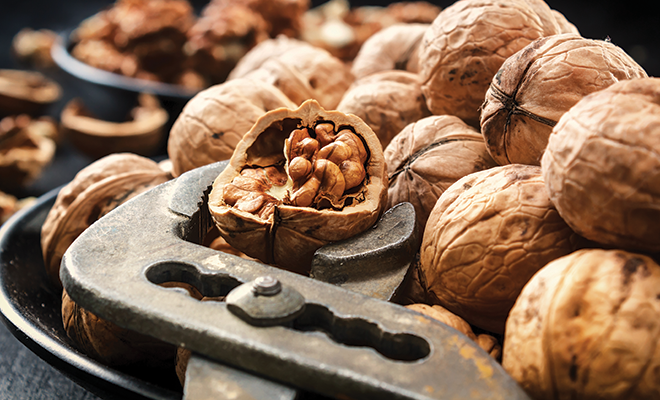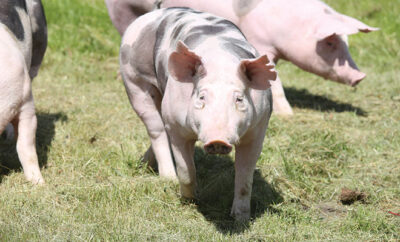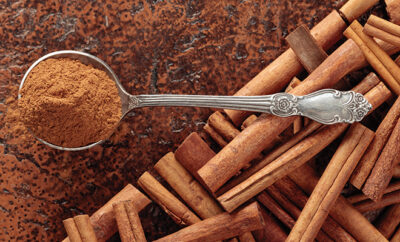
Night-Time Nutrition
Some people may laugh about, but inwardly dread, Friday the 13th. But for me, the date on the calendar that portends an ill omen is neither of these. No, it is the second Sunday of March that strikes fear in my soul.
This is the day that Daylight Savings Time begins to be observed in most of the United States.
If you live in an area with DST, all clocks must “spring forward” one hour on the second Sunday of March. That one hour doesn’t change the time the sun rises or sets, but it does give an extra hour of daylight in the evening. This bonus hour is not such a big deal for most people. However, for others, including me, a one-hour time change presents a real challenge.
Your body’s circadian rhythms are set to the hours of daylight. Some people experience a week or two of tiredness when DST begins. It’s not imaginary; studies have shown an increase in car accidents and workplace injuries on the Monday following the start of DST. Other studies support an increase in cases of depression after this date, with those numbers falling back to normal within a couple of months. A Swedish study found an increase in heart attacks on the first three weekdays following the time change.
There are strategies for easing into DST, such as going to bed earlier and getting up earlier in the weeks beforehand, for a more gradual time change. You may have rituals that help the transition to bedtime, such as reading a book, turning off all electronics or meditating.
Another strategy is to be mindful of the foods that you choose. We know to avoid certain things; coffee, caffeinated tea and soda and chocolate should be avoided in the evening. Alcohol and spicy foods can interfere with sleep. Portion control and timing also make a difference. If dinner is too early, you might wake during the night because you’re hungry. But eat too much too late and you might not get to sleep, or stay asleep, easily. Let’s focus on planning meals and snacks that will assist in getting a good night’s sleep.
Many people swear by having a cup of warm milk before bedtime. Why does milk have this sedative effect? It’s because of brain chemistry. Melatonin is the hormone our bodies need to induce and regulate sleep. Your brain uses an amino acid, tryptophan, to produce niacin, a B vitamin that is needed to create two important things: serotonin, a neurotransmitter associated with moods and sleep, and melatonin. Calcium is necessary to properly utilize tryptophan to produce serotonin. In the tryptophan-to-niacin-to-serotonin process, any form of calcium will provide this benefit—milk, yogurt or cheese. If you have to avoid dairy products, plenty of other foods are high in calcium, including tofu and soy milk, beans, spinach, broccoli and kale.
Certain foods are high in tryptophan, such as nuts and seeds, eggs, cheese, salmon and turkey. Turkey gets all the credit for inducing naps after Thanksgiving dinner because it’s a source of tryptophan. However, the rest of that meal provides support for tryptophan. Carbohydrates with a high glycemic index (white bread, russet potatoes and pumpkin) will create a spike in blood sugar and insulin. Insulin removes all amino acids from your system except for tryptophan. A meal of turkey, stuffing, mashed potatoes and pumpkin pie makes tryptophan available to your brain, and this meal produces melatonin. But you don’t need to prepare a Thanksgiving feast to enjoy this effect. A snack of pretzels or corn chips or a small amount of jasmine rice will provide a high glycemic boost that works with tryptophan stored in your body to help you fall asleep more quickly.
Walnuts are uniquely a source of both tryptophan and melatonin. Try a handful of walnuts as a bedtime snack, and add almonds for an extra boost. Almonds are rich in magnesium, a mineral your body needs for a few hundred functions, including sleep. But modern diets with processed foods are often deficient in magnesium. Good sources of magnesium are bananas, tart cherry juice, almonds and cashews, black beans, whole wheat and milk.
Different combinations of food might support your body’s sleep cycles. One possibility is a stir-fry supper including leafy green vegetables and tofu (calcium) served over jasmine rice (glycemic boost). Bedtime snacks might be peanut or almond butter on whole wheat crackers with a glass of milk, or a smoothie made with almond milk, banana and ice.
As DST approaches, experiment to find what foods work best for you to get your best night’s sleep. ■
Sources: timeanddate.com, sleep.com and rd.com.







